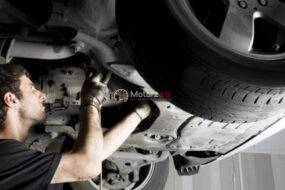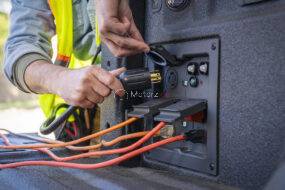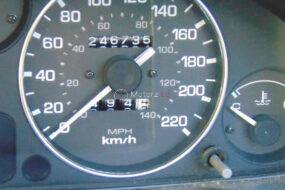The decision to purchase a vehicle is a significant one, and choosing between a Certified Pre-Owned (CPO) and a used car can be daunting. Both options offer unique advantages and drawbacks, and the best choice often depends on your specific needs, budget, and preferences. This comprehensive guide will help you navigate the decision-making process by exploring the differences, benefits, and considerations of CPO and used cars.
Understanding Certified Pre-Owned (CPO) Cars
What is a Certified Pre-Owned Car?
Certified Pre-Owned cars are a subset of used vehicles that have undergone extensive inspections and refurbishments. They are typically sold by franchise dealerships and come with a manufacturer-backed warranty. Here’s why they stand out:
- Thorough Inspection: Certified Pre-Owned vehicles must pass a rigorous multi-point inspection, ensuring they meet high standards of quality.
- Warranty Protection: Certified Pre-Owned cars often come with extended warranties, providing peace of mind similar to new cars.
- Vehicle History Report: These cars come with a detailed history report, guaranteeing transparency regarding past ownership and maintenance.
Benefits of Buying CPO
- Quality Assurance: The extensive inspection process ensures reliability and performance.
- Added Security: With a warranty, buyers face fewer concerns about unexpected repairs.
- Value Retention: Certified Pre-Owned cars often hold their value better due to the assurance and condition provided.
Exploring Used Cars
What Constitutes a Used Car?
Used cars encompass all previously owned vehicles not sold under a Certified Pre-Owned program. They vary widely in terms of condition, price, and features, offering a broad spectrum of choices:
- Diverse Inventory: Used cars are available in various models, makes, and conditions.
- Flexible Pricing: Often, used cars are more affordable than Certified Pre-Owned cars due to the lack of certification costs.
- Potential Bargains: Buyers can find great deals, especially with older models and private sales.
Advantages of Used Cars
- Cost-Effectiveness: Generally, used cars have a lower purchase price, offering savings upfront.
- Broader Selection: With no restriction to recent models, used cars provide a wider range of options.
- Negotiable Terms: Pricing is often more flexible, allowing for negotiations and potential savings.
Comparing Costs: CPO vs. Used Cars
Initial Purchase Price
- CPO Cars: Typically cost more than regular used cars due to certification and added warranties.
- Used Cars: More budget-friendly, especially if you opt for older models or private sales.
Long-Term Expenses
- CPO Cars: Lower maintenance costs due to inspections and warranties which can cover repairs.
- Used Cars: Can incur higher repair costs if not thoroughly inspected prior to purchase.
Factors to Consider When Choosing
Budget Constraints
Determine your financial limits. While CPO cars offer more security, used cars can be more affordable, especially for those on a tight budget.
Longevity and Use
Consider how long you plan to keep the car. If you intend to drive it for many years, a CPO might be worth the investment.
Desired Features
Newer CPO cars may include modern features and technology not available in older used cars.
Risk Tolerance
If you are risk-averse, a CPO car provides a safety net with warranties. Used cars require thorough independent inspections to mitigate risk.
Tips for Making the Best Decision
Thorough Research
- Compare Models: Look at both CPO and used versions of your preferred models.
- Check Market Prices: Understand the average market prices for both options to ensure you’re getting a fair deal.
Vehicle Inspection
- Professional Evaluation: Even with a CPO, consider having an independent mechanic evaluate the car.
- Inspect Used Cars Meticulously: For used cars, a detailed inspection is crucial to avoid hidden problems.
Test Drive
- Experience Both: Always test drive cars to get a feel for their performance and comfort.
- Assess Driving Needs: Ensure the vehicle fits your lifestyle and driving requirements.
The Appeal of Certified Pre-Owned (CPO) Vehicles
Defining Certified Pre-Owned
Certified Pre-Owned vehicles are used cars that have undergone a thorough inspection and refurbishment process. These cars are typically sold by authorized dealerships and come with manufacturer-backed warranties, ensuring quality and reliability. Here are the key features of CPO vehicles:
- Rigorous Inspection: CPO cars must pass a detailed multi-point inspection, ensuring they meet stringent standards for condition and performance.
- Extended Warranty: These vehicles often come with an extended warranty, offering coverage similar to that of new cars.
- Assured Vehicle History: Buyers receive a comprehensive vehicle history report, providing transparency about past usage, accidents, and maintenance.
Why Choose CPO?
- Reliability and Quality: The extensive inspection process reduces the risk of unforeseen issues.
- Warranty Benefits: The included warranty provides peace of mind against unexpected repairs and maintenance costs.
- Higher Resale Value: CPO cars tend to maintain their value better due to their quality assurance and condition.
The Flexibility of Used Cars
Understanding Used Cars
Used cars cover a broad category of previously owned vehicles sold independently or through dealerships. These cars range widely in terms of age, condition, and price. Here’s what defines them:
- Wide Availability: Used cars offer a diverse selection of makes, models, and years.
- Cost-Effective Options: Without the certification cost, used cars are generally more affordable than CPOs.
- Potential for Great Deals: With careful searching, buyers can find well-maintained used cars at competitive prices.
Advantages of Buying Used
- Lower Initial Cost: Used cars typically have a lower purchase price, making them attractive for budget-conscious buyers.
- Variety of Choices: The range of options includes models and features that may not be present in newer CPO selections.
- Opportunity for Negotiation: Prices for used cars are often more negotiable, allowing for potential savings.
Cost Analysis: CPO vs. Used Cars
Upfront Costs
- CPO Vehicles: Generally priced higher than used cars due to certification and added warranties.
- Used Cars: More affordable upfront, especially if purchasing from private sellers or older models.
Ongoing Expenses
- CPO Vehicles: Lower maintenance costs are expected due to warranty coverage and the initial inspection.
- Used Cars: May incur higher maintenance and repair expenses if not thoroughly evaluated before purchase.
Key Considerations for Choosing
Budget Evaluation
Assess your financial situation and determine which option better fits your monetary constraints. While CPO cars provide security, used cars offer affordability.
Usage and Longevity
Consider how long you intend to keep the car and how intensively you plan to use it. A CPO car might be a worthwhile investment if you plan on keeping it for several years.
Feature Preferences
Newer CPO vehicles often come with modern technology and features that older used cars may lack. Align your choice with your desire for certain features.
Comfort with Risk
If you prefer security and minimal risk, CPOs offer warranties that reduce potential financial surprises. For those comfortable with more risk, a used car can be a cost-effective choice.
Practical Tips for Buyers
Conduct Thorough Research
- Model Comparisons: Investigate both CPO and used models to understand differences in features, performance, and pricing.
- Market Pricing: Familiarize yourself with market prices to ensure you’re not overpaying.
Inspect and Test Drive
- Professional Inspections: Even with a CPO car, consider an independent inspection to verify the dealer’s claims.
- Detailed Checks for Used Cars: Ensure any used vehicle passes a comprehensive inspection to uncover potential issues.
Negotiate with Confidence
- Be Prepared: Gather information on typical pricing and be ready to negotiate to get the best deal.
- Walk Away if Necessary: Don’t hesitate to walk away if the terms aren’t favorable.
Deciding between a Certified Pre-Owned and a used car requires careful consideration of your financial situation, risk tolerance, and personal preferences. CPO cars provide quality assurance and security at a higher cost, while used cars offer broader choices and savings potential. By weighing these factors, you can make an informed decision suited to your needs.
Summary of Key Points
Choosing between a Certified Pre-Owned and a used car requires a balance of financial considerations, risk tolerance, and personal preferences. CPO cars offer security and quality assurance but at a higher cost. Used cars provide flexibility and affordability, with a broader selection of models and conditions.





